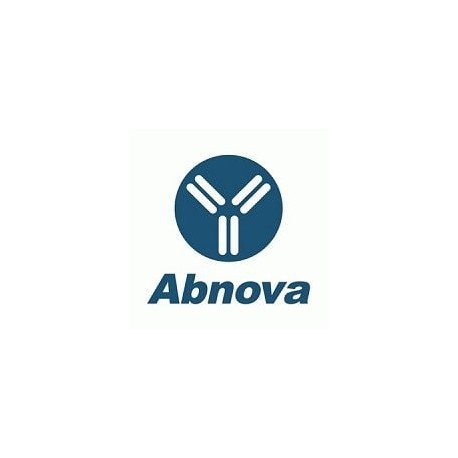Cart 0 Product Products (empty)
No products
To be determined Shipping
0,00 € Total
Prices are tax excluded
Product successfully added to your shopping cart
Quantity
Total
There are 0 items in your cart. There is 1 item in your cart.
Total products (tax excl.)
Total shipping (tax excl.) To be determined
Total (tax excl.)
Data sheet of ABLIM3 MaxPab mouse polyclonal antibody (B01)
| Brand | Abnova |
| Product type | Primary antibodies |
| Reactivity | Human |
| Host species | Mouse |
| Applications | WB-Tr |
More info about ABLIM3 MaxPab mouse polyclonal antibody (B01)
| Brand: | Abnova |
| Reference: | H00022885-B01 |
| Product name: | ABLIM3 MaxPab mouse polyclonal antibody (B01) |
| Product description: | Mouse polyclonal antibody raised against a full-length human ABLIM3 protein. |
| Gene id: | 22885 |
| Gene name: | ABLIM3 |
| Gene alias: | HMFN1661 |
| Gene description: | actin binding LIM protein family, member 3 |
| Genbank accession: | BC001665.2 |
| Immunogen: | ABLIM3 (AAH01665.1, 1 a.a. ~ 544 a.a) full-length human protein. |
| Immunogen sequence/protein sequence: | MNTSIPYQQNPYNPRGSSNVIQCYRCGDTCKGEVVRVHNNHFHIRCFTCQVCGCGLAQSGFFFKNQEYICTQDYQQLYGTRCDSCRDFITGEVISALGRTYHPKCFVCSLCRKPFPIGDKVTFSGKECVCQTCSQSMASSKPIKIRGPSHCAGCKEEIKHGQSLLALDKQWHVSCFKCQTCSVILTGEYISKDGVPYCESDYHAQFGIKCETCDRYISGRVLEAGGKHYHPTCARCVRCHQMFTEGEEMYLTGSEVWHPICKQAARAEKKLKHRRTSETSISPPGSSIGSPNRVICDIYENLDLRQRRASSPGYIDSPTYSRQGMSPTFSRSPHHYYRSGDLSTATKSKTSEDISQTSKYSPIYSPDPYYASESEYWTYHGSPKVPRARRFSSGGEEDDFDRSMHKLQSGIGRLILKEEMKARSSSYADPWTPPRSSTSSREALHTAGYEMSLNGSPRSHYLADSDPLISKSASLPAYRRNGLHRTPSADLFHYDSMNAVNWGMREYKIYPYELLLVTTRGRNRLPKDVDRTRLEGNFWKSGCL |
| Protein accession: | AAH01665.1 |
| Storage buffer: | No additive |
| Storage instruction: | Store at -20°C or lower. Aliquot to avoid repeated freezing and thawing. |
| Quality control testing: | Antibody reactive against mammalian transfected lysate. |
| Note: | For IHC and IF applications, antibody purification with Protein A will be needed prior to use. |
| Product type: | Primary antibodies |
| Host species: | Mouse |
| Antigen species / target species: | Human |
| Reactivity: | Human |
| Application image: |  |
| Application image note: | Western Blot analysis of ABLIM3 expression in transfected 293T cell line (H00022885-T01) by ABLIM3 MaxPab polyclonal antibody. Lane 1: ABLIM3 transfected lysate(59.84 KDa). Lane 2: Non-transfected lysate. |
| Applications: | WB-Tr |
| Shipping condition: | Dry Ice |
| Publications: | Amyloid-{beta} overproduction causes abnormal mitochondrial dynamics via differential modulation of mitochondrial fission/fusion proteins.Wang X, Su B, Siedlak SL, Moreira PI, Fujioka H, Wang Y, Casadesus G, Zhu X. Proc Natl Acad Sci U S A. 2008 Dec 9;105(49):19318-23. Epub 2008 Dec 2. |


